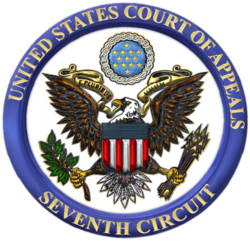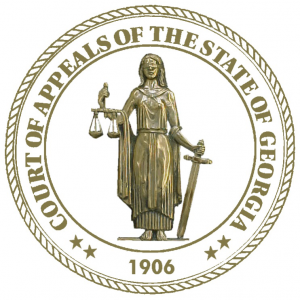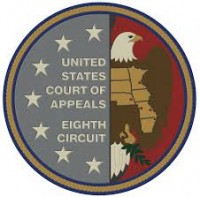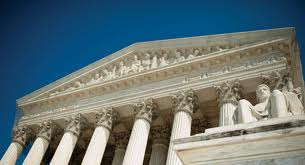The U.S. Court of Appeals for the Seventh Circuit recently reversed a district court’s denial of class certification in a putative class action alleging that a debt collector violated the federal Fair Debt Collection Practices Act (FDCPA) by sending supposedly misleading letters to Illinois residents trying to collect time-barred debts. A copy of the opinion in Scott McMahon v. LVNV Funding, LLC is available at: Link to Opinion. The plaintiff alleged that the defendant debt collector violated the FDCPA because it sent “dunning letters containing language that would mislead an unsophisticated consumer into believing that the debt is legally enforceable” even…
Posts published in “FDCPA”
Fair Debt Collection Practices Act
The U.S. District Court for the District of New Jersey recently dismissed a debtor’s claims for violations of the federal Fair Debt Collection Practices Act (FDCPA) and the New Jersey Truth in Consumer Contract Warranty and Notice Act (TCCWNA), holding the debtor’s failure to schedule his lawsuit as an asset of his bankruptcy estate deprived him of standing to later assert the claims. A copy of the opinion in Lewis v. Portfolio Recovery Associates, LLC is available at: Link to Opinion. In March 2015, the debtor filed a lawsuit alleging the defendant sent him a letter in an attempt to collect a debt…
Debt collectors seeking to avoid liability under the bona fide error exception of the federal Fair Debt Collection Practices Act (FDCPA) will not be excused from liability if the conduct at issue was intentionally undertaken. That is the ruling from the Seventh Circuit Court of Appeals in Leeb v. Nationwide Credit Corporation. Mark Leeb received a telephone call and letter from Nationwide seeking payment for an unpaid medical debt. Leeb wrote Nationwide stating he did not owe the debt because it was payable by his health insurance. He also requested Nationwide provide him verification of the debt under section 1692g(b) of…
The Appellate Division of the Fifteenth Judicial Circuit of the State of Florida recently reversed dismissal of a federal Fair Debt Collection Practices Act (FDCPA) claim alleging a debt collector’s letter falsely represented a bank was the creditor of a loan. In so ruling, the Appellate Division confirmed that even though a foreclosure action is not necessarily debt collection, the enforcement of a promissory note constitutes debt collection activity even if done in conjunction with the enforcement of a security interest, and even the debt collector stated it was seeking solely to foreclose the creditor’s lien on the real estate,…
The Court of Appeals of Georgia, Second Division, recently held that a debt collector did not violate the federal Fair Debt Collections Practices Act (FDCPA), holding that even if the alleged misrepresentations in the debt collector’s affidavit were technically false, they were not material and thus failed to state a claim. A copy of the opinion in Summer v. Security Credit Services LLC is available at: Link to Opinion. In August 2006, a national bank issued a credit card to the debtors, who defaulted by failing to pay the account. In April 2011, the issuing bank and a debt buying company…
In an action alleging that the defendants violated the federal Fair Debt Collection Practices Act (FDCPA) by sending a form letter attempting to collect on allegedly time-barred debts, the U.S. District Court for the Middle District of Florida recently denied the plaintiff’s motion for class certification. In so ruling, the Court held: The plaintiff failed to demonstrate that the defendants’ records contain sufficient information from which the Court could determine whether each class member’s debt was obtained for “consumer” purposes; and Even if Plaintiff were able to establish on a class-wide basis that the defendants had a routine practice of…
The U.S. Court of Appeals for the Second Circuit recently reversed dismissal of a federal Fair Debt Collection Practices Act (FDCPA) claim based on the statute of limitations, holding that an FDCPA violation occurs when a bank freezes a debtor’s bank account, not when a debt collector sends a restraining notice to the bank. In so ruling, the Court distinguished the rulings in Maloy v. Phillips, 64 F. 3d 607 (11th Cir. 1995) and Mattson v. U.S. W. Commc’ns, Inc., 967 F. 2d 259 (8th Cir. 1992), which held that an FDCPA violation occurs when the alleged unlawful debt collection…
The U.S. Court of Appeals for the Eighth Circuit recently affirmed the dismissal of a federal Fair Debt Collection Practices Act (FDCPA) claim premised solely on the allegation that an affiant who swore to have personal knowledge of the facts did not, in fact, possess personal knowledge when he made the affidavit. In reaching its decision the Court held that even if the affiant lacked “personal knowledge,” the plaintiff had not plausibly alleged that the content of the affidavit contained a false statement “in any meaningful way.” A copy of the opinion in Janson v. Katharyn B. Davis, LLC is available…
The U.S. District Court for the District of Oregon recently held that a notice provided pursuant to 15 U.S.C. 1692g that also contained additional language requesting that a dispute of the debt “please” be sent in writing violated the federal Fair Debt Collection Practices Act (FDCPA). In so ruling, the District Court held that such additional language overshadows or is inconsistent with a consumer’s right to orally dispute the debt within the 30-day period under 15 U.S.C. 1692g, and constitutes a false representation or deceptive means to collect or attempt to collect a debt under the FDCPA. A copy of…
The U.S. Court of Appeals for the Sixth Circuit recently affirmed judgment on the pleadings in favor of a debt collector because the voicemail in question, which was left at the plaintiff’s business, was not a “communication” as defined by the federal Fair Debt Collection Practices Act (FDCPA) because it did not convey information about the debt. A copy of the opinion is available at: Link to Opinion. A debt collector sent a letter to the debtor’s business requesting payroll information and later left a voicemail at the debtor’s business that stated the caller’s name, the name of the company…
Yesterday’s oral argument before the U.S. Supreme Court in Spokeo v. Robins suggests a struggle to fashion an understanding of what can constitute an “injury in fact.” It pitted the issue of whether a plaintiff’s standing to sue requires a tangible, concrete injury (loss of money, a job or property right) against the concept that the law can identify a “harm” (in this case, inaccurate information in a credit report) which itself is a real injury. Finding the Injury Spokeo v. Robins concerns an alleged violation of the Fair Credit Reporting Act. Robins claimed Spokeo compiled a report about him that contained false information…
Earlier this summer we explained here that the Third Circuit’s decision in Kaymark spelled Fair Debt Collection Practices Act trouble for mortgage lenders and servicers who make statements seeking to recover estimated fees and costs. We examined these risks in a recent webinar as well. In Beard v. Ocwen, a federal district court, citing Kaymark, recently held a mortgage servicer liable under the FDCPA for a reinstatement letter made by its foreclosure counsel, which included fees and costs that had not been incurred. Word Placement Matters When Describing ‘Anticipated’ Fees Jaynie Beard defaulted on her mortgage loan. Following the default, the mortgage loan’s…












